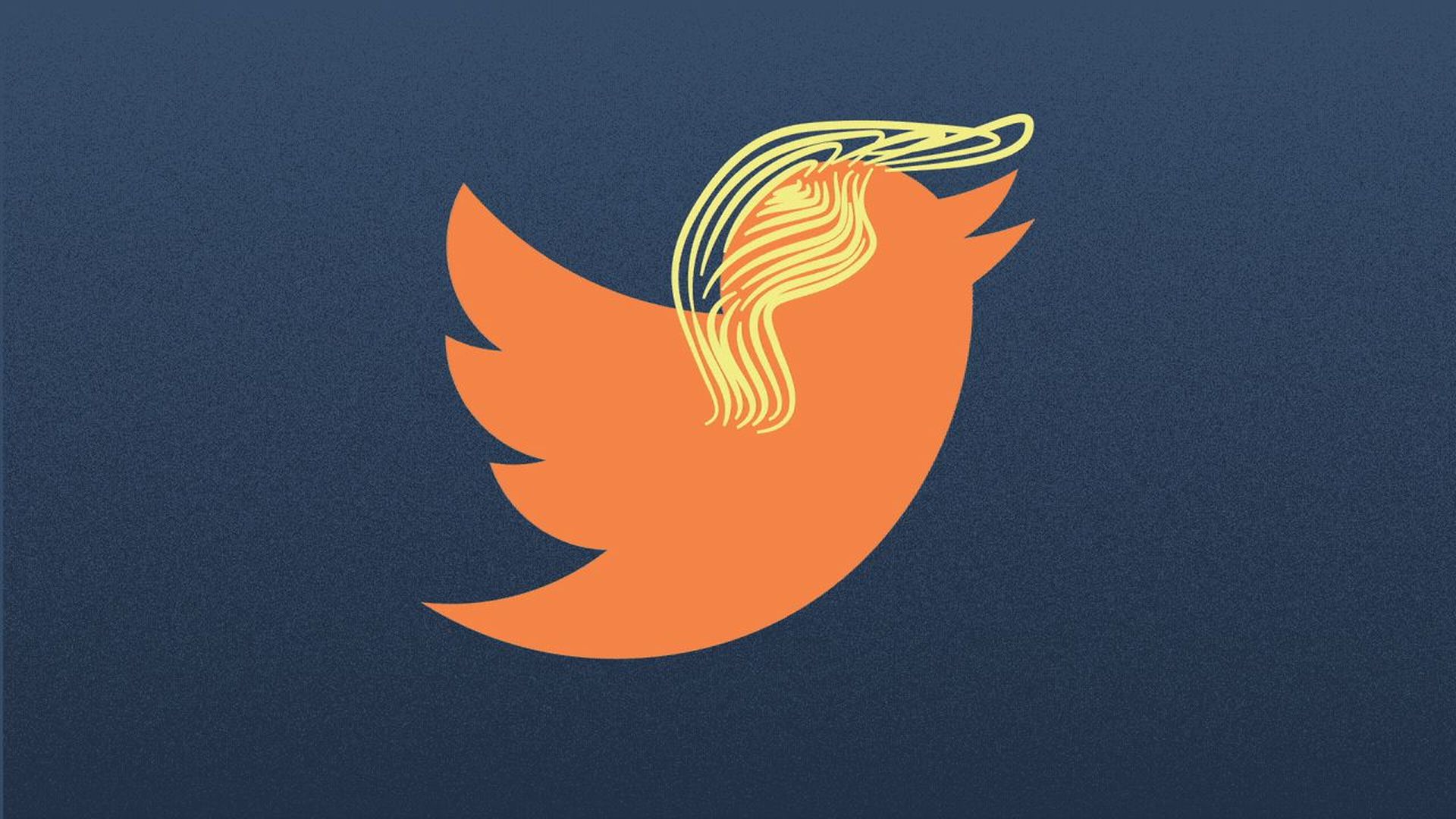| | | | | | | Presented By Nom Nom | | | | Axios Login | | By Ina Fried · Nov 21, 2022 | | 🇨🇭Axios will be at the 2023 World Economic Forum in Davos, Switzerland. Want to attend one of our events? Request an invite here. Today's Login is 1,256 words, a 5-minute read. | | | | | | 1 big thing: Zoom's looming squeeze |  | | | Among Zoom's new features is Spots, a virtual office water cooler. Image: Zoom | | | | Zoom, which boomed during the pandemic and became nearly synonymous with video chat, could yet find itself squeezed out despite a recent push to expand into new areas. The big picture: Businesses tend to like to get their services from as few vendors as possible, a trend that encourages bundling and makes it hard for ambitious, innovative start-ups to succeed. Driving the news: Zoom will report its latest quarterly earnings on Monday, where it is expected to post per-share quarterly of 84 cents, per Zacks, down 24% from a year ago. Revenue, meanwhile, is seen growing 4%, to $1.1 billion. - Zoom's stock has lost more than half its value in 2022, a steeper drop than the average for tech companies.
- Earlier this month, Zoom announced it is expanding to offer email and calendar services as well as new casual collaboration features to augment its core video meeting services.
What they're saying: "Zoom recognizes that good video meetings are not enough, which is progress compared to what (CEO) Eric Yuan was saying three years ago," Creative Strategies analyst Carolina Milanesi told Axios. Yes, but: Most companies already have an email and calendar system. Of note: Early next year, Zoom also plans to launch Spots, a "virtual coworking space" that aims to "bring the fluid interactions of in-person work to distributed, hybrid teams." - "Spots is an interesting concept nobody else has thought of to try and recreate that water cooler moment, but it has to be thought through carefully from a privacy perspective," Milanesi said. "For now it seems that Zoom is willing to let customers experiment and see what works."
Between the lines: Analysts say Zoom is doing the right things, but still could be in trouble, as Microsoft, Google and Cisco all offer their own video conferencing options that can be bundled with other software. - Consider what happened to Slack: It had its market arguably far more to itself than Zoom does, yet it still struggled to compete as Microsoft bundled Teams into Office.
- Companies like Microsoft or Google can afford to add in more services without charging separately, a luxury the one-trick ponies can't afford.
- That's a big reason that Slack eventually sold itself to Salesforce.
|     | | | | | | 2. Twitter's Trump distraction |  | | | Illustration: Brendan Lynch/Axios | | | | Elon Musk drove headlines through the weekend with a poll on whether to reinstate former President Donald Trump's account and a snap "yes" decision based on a 52-48 split among 15 million votes. Yes, but: The move was an effective attention-getter, but it did nothing to resolve any of the long list of problems facing Musk's Twitter remodel, including reluctant advertisers, fleeing staffers, and erratic, contradictory edicts on speech and other policies. Driving the news: Musk tweeted Saturday that Trump would be allowed back on Twitter, and his account was reactivated. - Trump has not yet resumed tweeting, and he told followers on his own social network, Truth Social, "Don't worry, we aren't going anywhere." Trump also has contractual obligations to Truth Social requiring him to post there first and wait hours before reposting elsewhere.
Musk also said that he will institute a new "freedom of speech, not reach" policy. - Instead of prohibiting hate speech and eventually banning repeat offenders, Twitter will now leave such messages intact but seek to demonetize and deprioritize them.
- Musk provided no details for exactly how any of this will work or who will carry out the policy after the decimation of the ranks of many of Twitter's content moderation units.
Twitter also faces questions about the resilience of its systems, with reports suggesting many critical teams have lost most or all of their staff via layoffs and resignations. - The service faces a fresh test of its reliability with the World Cup beginning Sunday.
Experts say a sudden breakdown of Twitter — as many on the network feared going into the weekend — is less likely than a steady degrading of some features. - The company's system for protecting against copyright infringement appears to have broken down, per Forbes, with whole movies being posted to the site.
- Researchers and individual users, meanwhile, have reported an increase of racist and antisemitic content since Musk's takeover of Twitter, as systems meant to enforce the site's rules appear to be working less effectively.
Between the lines: Allowing Trump back onto the platform could be a bid to bring back right-leaning users who may have decamped for alternatives like Parler, Gab and Trump's Truth Social. - Beyond Trump, Musk has also reinstated others, including accounts for Jordan Peterson and online publication The Babylon Bee, both of which had been suspended for deliberately misgendering prominent transgender people.
- Musk did draw one line, saying conspiracy theorist Alex Jones would not be allowed back.
Our thought bubble: Musk has shredded Twitter's existing content policies without providing any clear replacement. - He'd previously said he would create an advisory council before making any major content decisions, but staffing such a committee could be tough now.
What they're saying: "In less than three weeks Musk has gone back on every promise he made to civil-rights leaders and advertisers," Free Press co-CEO Jessica J. González said in a statement. - The NAACP also condemned the move to reinstate Trump, calling on any remaining advertisers to pause their spending.
- "In Elon Musk's Twittersphere, you can incite an insurrection at the U.S. Capitol, which led to the deaths of multiple people, and still be allowed to spew hate speech and violent conspiracies on his platform," NAACP president Derrick Johnson said in a statement.
|     | | | | | | 3. RIP: Fred Brooks, software philosopher |  | | | Engineers inspect IBM System/360 Model 20 computers in 1966. Photo: IBM/PhotoQuest/Getty Images | | | | Computing pioneer Fred Brooks, who passed away Nov. 17, is best known for Brooks' Law: "Adding manpower to a late software project makes it later," Axios' Scott Rosenberg writes. Brooks spent most of his career as a teacher at UNC, where he founded the computer science department. But his law was based on observation and personal experience in the industry trenches: He'd led the team in the early 1960s that created the operating software for the IBM 360, which dominated mainframe computing for decades. The project was a train wreck. It was so late, IBM ended up shipping the computers without the software — and it sent Brooks on a quest to understand why programming projects had proven so hard to manage. - His resulting 1975 book, "The Mythical Man-Month," is an enduring classic — a starting point to this day for any inquiry into the nature of making software.
- In a follow-up 1986 essay, "No Silver Bullet," Brooks methodically debunked prospects for making software production radically more efficient. Brooks' forecast — that software would never produce the kind of exponential improvement seen in the microchip world — has held up over the decades.
Be smart: Adding new developers to a late project slows things down because of "coordination costs," Brooks was the first to explain. - The current crew has to bring newcomers up to speed, and the whole team must adapt to sharing information on a larger scale.
- Elon Musk, take note!
Go deeper: Read computer scientist Steve Bellovin's detailed tribute to Brooks. |     | | | | | | A message from Nom Nom | | The easiest way to give your dog nourishing food | | |  | | | | Cooked gently and packed fresh, Nom Nom recipes are formulated by veterinary nutritionists. What's in it for your pup: Our food is packed with all the real, nutrient-dense protein and vegetables dogs need to thrive. Sign up today to get 50% off your two-week trial. | | | | | | 4. Take note | | On Tap Trading Places - On Friday, FTX fired three of its top executives who were close associates of former CEO Sam Bankman-Fried.
ICYMI - Amazon said it plans to shut down Wickr Me, the free version of the encrypted messaging system it acquired last year. A paid version for businesses, Wickr AWS, will continue. (The Verge)
- Microsoft brought the SwiftKey keyboard back to the iOS App Store less than two months after taking it down, due to "customer feedback." (The Verge)
|     | | | | | | 5. After you Login | | Check out this amazing portrait series, "Camo," by Kenyan artist Thandiwe Muriu. |     | | | | | | A message from Nom Nom | | Nom Nom: The best dish of your dog's life | | |  | | | | Cooked gently and packed fresh, Nom Nom recipes are formulated by veterinary nutritionists. What's in it for your pup: Our food is packed with all the real, nutrient-dense protein and vegetables dogs need to thrive. Sign up today to get 50% off your two-week trial. | | | | Thanks to Scott Rosenberg and Peter Allen Clark for editing and BryanMcBournie for copy editing this newsletter. |  | | Your personal policy analyst is here. | | | | | | Axios thanks our partners for supporting our newsletters. If you're interested in advertising, learn more here.
Sponsorship has no influence on editorial content. Axios, 3100 Clarendon Blvd, Arlington VA 22201 | | | You received this email because you signed up for newsletters from Axios.
Change your preferences or unsubscribe here. | | | Was this email forwarded to you?
Sign up now to get Axios in your inbox. | | | | Follow Axios on social media:    | | | | | |







No comments:
Post a Comment